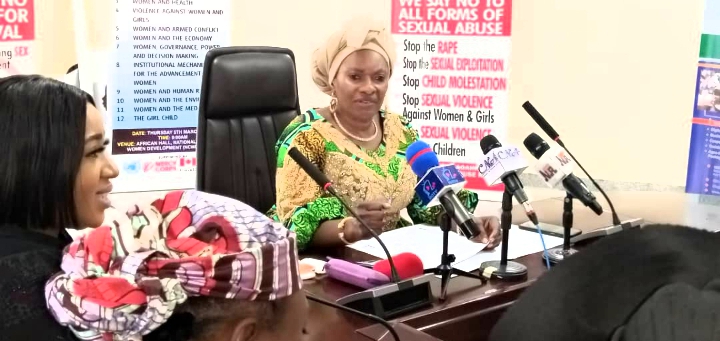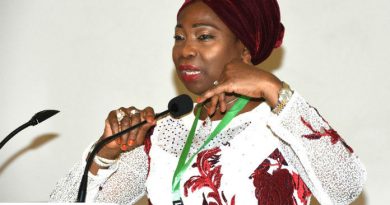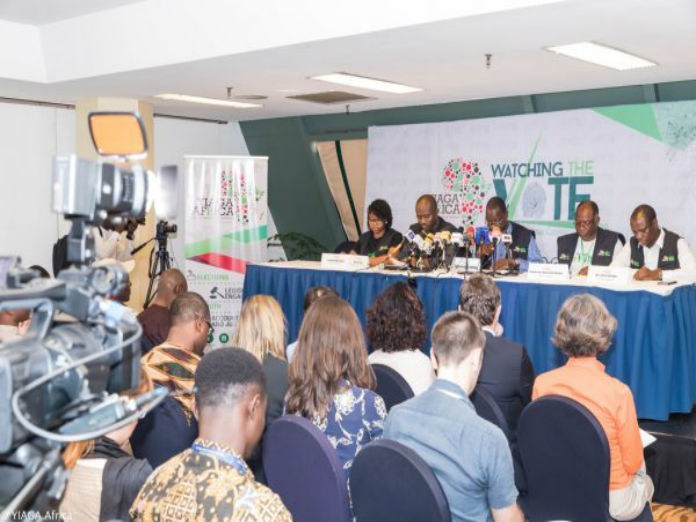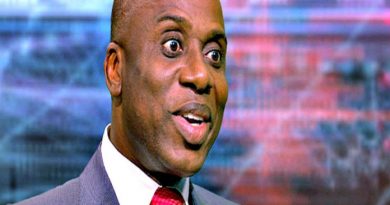The clock is ticking, the women are watching and gearing up for action- Tallen
Maryam Aminu
The inadequate number of women in decision-making positions explained the country’s low investment and slow progress in some of the crucial sectors of human development outcomes.
The Honourable Minister, Federal Ministry of women Affairs, Dame Pauline Tallen stated this on Friday in Abuja at a news conference while updating press on the status of women inclusion, participation in governance, both at the state and subnational levels.
She added that the demand for full and equitable participation of women in public life and leadership space in Nigeria had consistently dominated public discourse due to the key role they played in the political process.
According to her, the essence of the news conference is to remind the political parties and aspirants that the level of women’s representation at the various positions in states, despite their numerical population strength, is nothing to write home about and as such women won’t cast their votes without negotiations
She said that the news conference was also to take stock of how political actors and gatekeepers have failed in rewarding the sacrifices of Nigerian women to further determine how best to support their ambition.
The minister stated that for a long time now, there had been a sustained poor representation and gender imbalance of women in critical areas, saying that there was need to change the narrative.
Finally, to ensure that it is no longer business as usual, we have started the process of building a Dashboard to display all the pro-women projects initiated and executed by the 36 States of the Federation. This will play a crucial role in determining the women’s support, especially for those serving who wish to continue in Office or seeking higher office, stated
“For instance, currently in the House of Representatives, out of 360 members, only18 are women, representing about 4.61 per cent; Senate has eight women out of 109 members, representing 7.34 percent.
“It is evident that women have been short changed. Out of 36 states of the federation there are no female governors, only two female deputy governors.
“Statistics from the 12 states show that we do not have a female secretary to government; of 287 state assembly members in 12 states only 23 are women; of 2,050 special assistants only 425 are females.
“Out of 325 local government chairmen, only 31 are females, 73 vice chairmen and 368 females out of 2,075 councillors of LGAs. This cannot continue.
“According to the World Economic Forum’s Global Gender Gap Report Ranking on Women Political Participation, Nigeria is worse off in 2019 (102nd) than nine years ago when it ranked 99th worldwide. This is a growing concern to Nigerian women,” she said.
The minister noted that despite the key role women played in the country, they were still largely absent from national and local decision-making bodies; adding that they struggled to have voice in issues and concerns affecting them.
She said that women would not support or vote blindly in the 2023 general elections any politician that is not ready to give women the pride of place they deserved.
Mrs Tallen stated that the women would only support political parties that are ready to fill in at least 35 per cent of women representation in both elective and appointive positions and provide for women in their party structures and manifestoes.
She further said that the ministry would continue to strengthen accountability mechanisms for voices of women and responsiveness to women’s needs, as well as fundamental principle of equality as enshrined in the 1999 Constitution.
The minister further disclosed that in a few weeks time women would be launching a project which would be called ‘Women Reconnect for New Nigeria Initiative (WR4NNI) as a new social mobilisation and sensitisation movement.
She said that the project was aimed at galvanizing the women to participate fully and equitably in the processes leading to the 2023 general elections and beyond and to reinvigorate the efforts of Nigerian women as they began to choose Nigerian leaders at all levels.
She stated that the movement was geared towards raising the bar in the demand for women’s participation while calling for implementation of affirmative actions in all political spheres by all.
She urged that 50% of political posts be reserved for women, as well as mainstreaming of gender into party politics at all levels, both federal, state, and LGAs.




